Filter by
SubjectRequired
LanguageRequired
The language used throughout the course, in both instruction and assessments.
Learning ProductRequired
LevelRequired
DurationRequired
SkillsRequired
SubtitlesRequired
EducatorRequired
Explore the Python Course Catalog
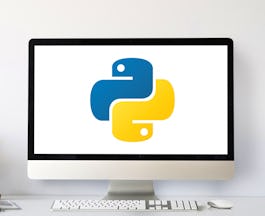
Skills you'll gain: Jupyter, Automation, Web Scraping, Python Programming, Data Manipulation, Data Import/Export, Data Structures, Data Collection, Application Programming Interface (API), JSON, Pandas (Python Package), Restful API, NumPy, Object Oriented Programming (OOP), Computer Programming


Google
Skills you'll gain: Scripting, Python Programming, Computer Programming, Algorithms, Problem Management, Data Structures, Debugging, Development Environment
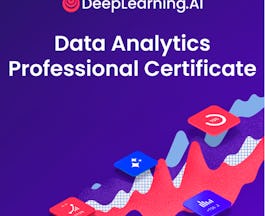

DeepLearning.AI
Skills you'll gain: Data Storytelling, Data Presentation, Google Sheets, Web Scraping, Spreadsheet Software, Dashboard, Data Visualization Software, Seaborn, Data Visualization, Interactive Data Visualization, Time Series Analysis and Forecasting, Descriptive Statistics, Probability & Statistics, Statistical Analysis, Statistics, Statistical Modeling, Pandas (Python Package), JSON, Query Languages, SQL


Microsoft
Skills you'll gain: Data Ethics, Data Structures, Generative AI, Matplotlib, Version Control, Git (Version Control System), Data Transformation, DevOps, Agile Methodology, Web Development, Data Cleansing, Scripting, Flask (Web Framework), GitHub, Pandas (Python Package), Debugging, Data Visualization Software, Restful API, Application Deployment, Test Driven Development (TDD)


Vanderbilt University
Skills you'll gain: ChatGPT, Generative AI, Artificial Intelligence and Machine Learning (AI/ML), OpenAI, Artificial Intelligence, Business Process Automation, Automation, Strategic Thinking, Python Programming, Creative Thinking, Creativity, Business Intelligence, Value Propositions, Workflow Management, Software Design, Emerging Technologies, Innovation, Business Strategy, Natural Language Processing, Action Oriented


University of Michigan
Skills you'll gain: Web Scraping, Data Processing, Relational Databases, JSON, Database Design, SQL, Network Protocols, Databases, Web Services, Restful API, Programming Principles, Data Cleansing, Data Structures, Data Storytelling, Data Collection, Computer Programming, Python Programming, Data Manipulation, Development Environment, Computational Thinking
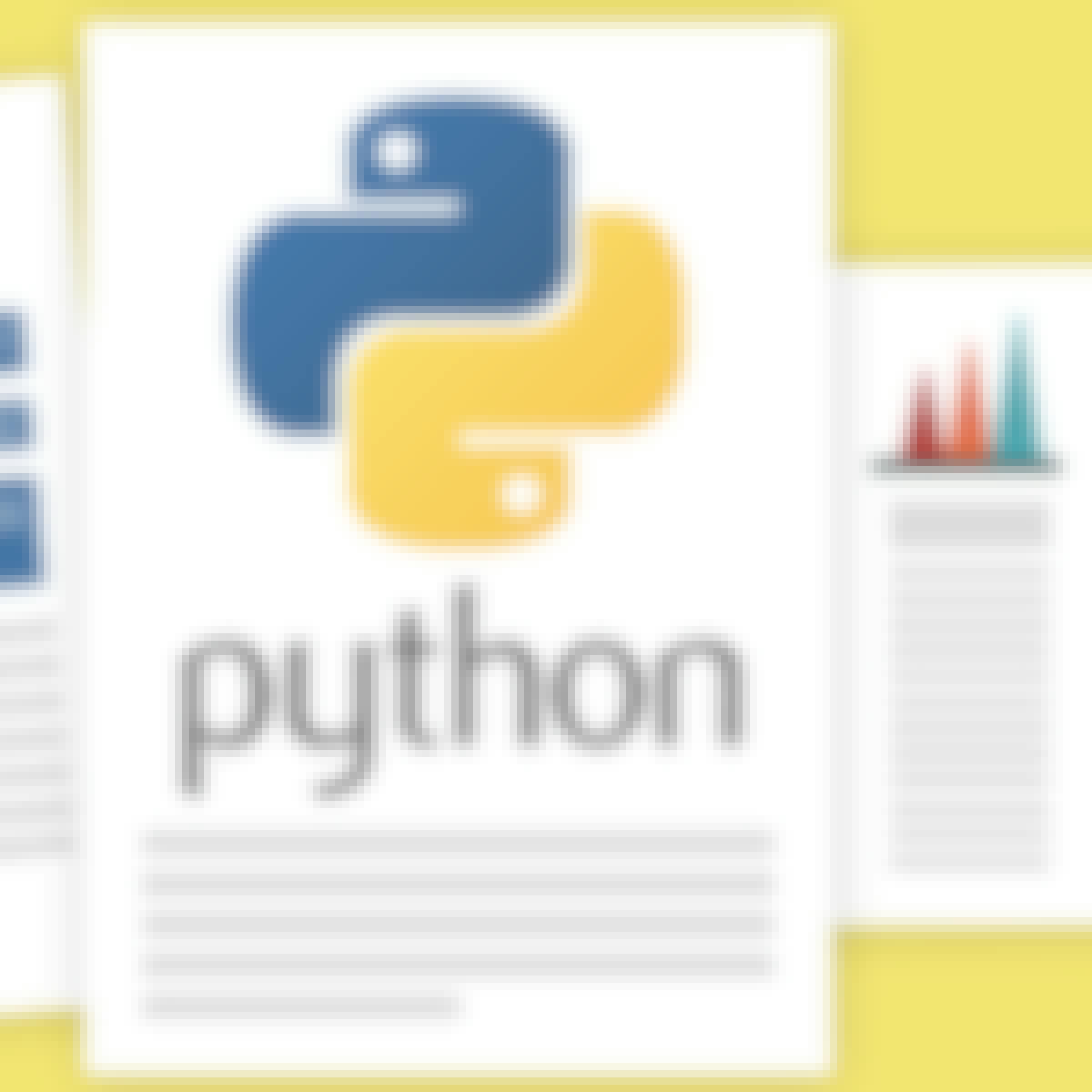
Skills you'll gain: Data Wrangling, Data Cleansing, Data Analysis, Data Manipulation, Data Transformation, Data Import/Export, Exploratory Data Analysis, Predictive Analytics, Statistical Analysis, Regression Analysis, Predictive Modeling, Pandas (Python Package), Scikit Learn (Machine Learning Library), Statistical Modeling, Machine Learning Methods, Feature Engineering, Python Programming, Data Pipelines, NumPy
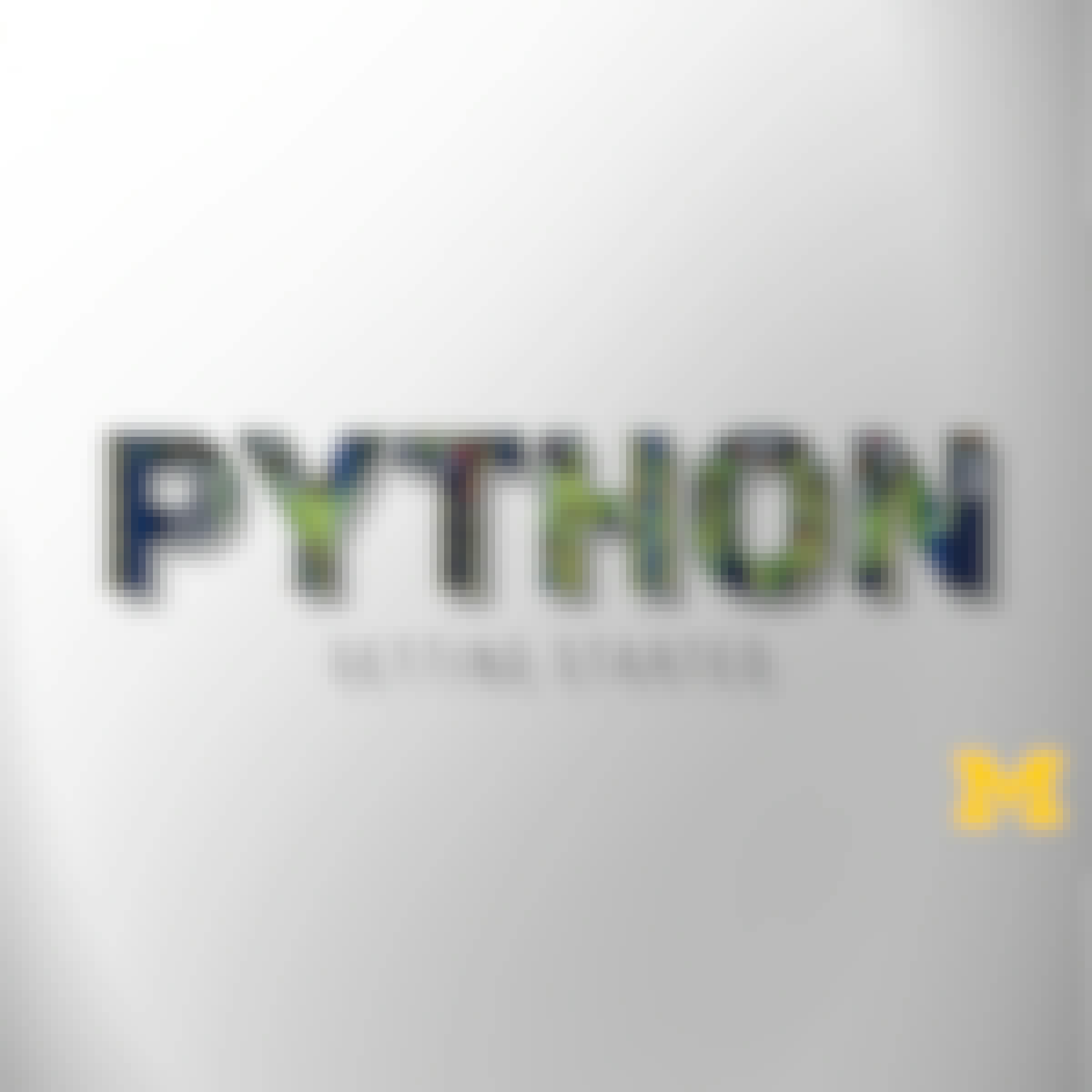

University of Michigan
Skills you'll gain: Programming Principles, Computer Programming, Python Programming, Computational Thinking, Software Installation, Development Environment
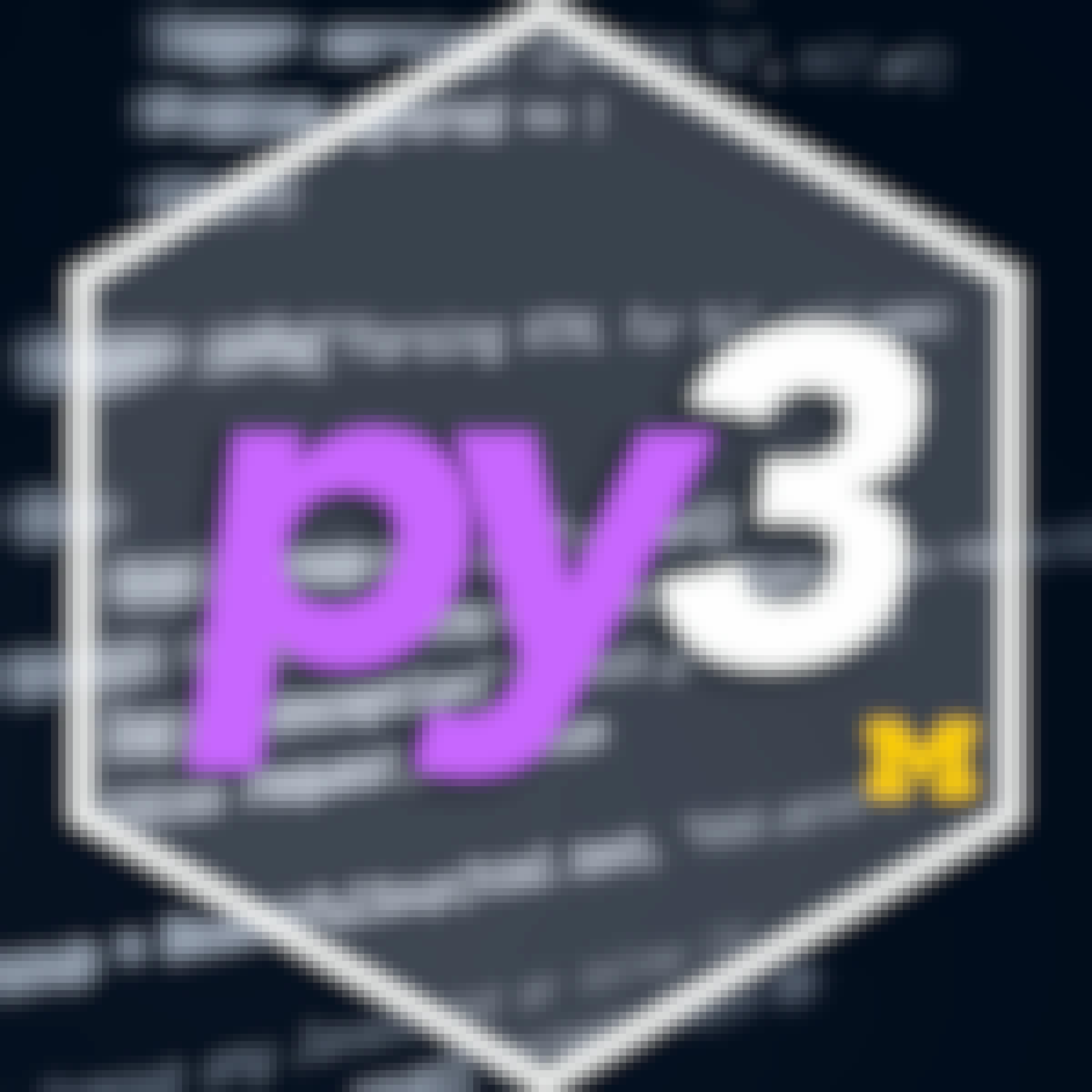

University of Michigan
Skills you'll gain: Debugging, Python Programming, Data Structures, Computer Programming, Computer Graphics, Graphical Tools, Computational Thinking
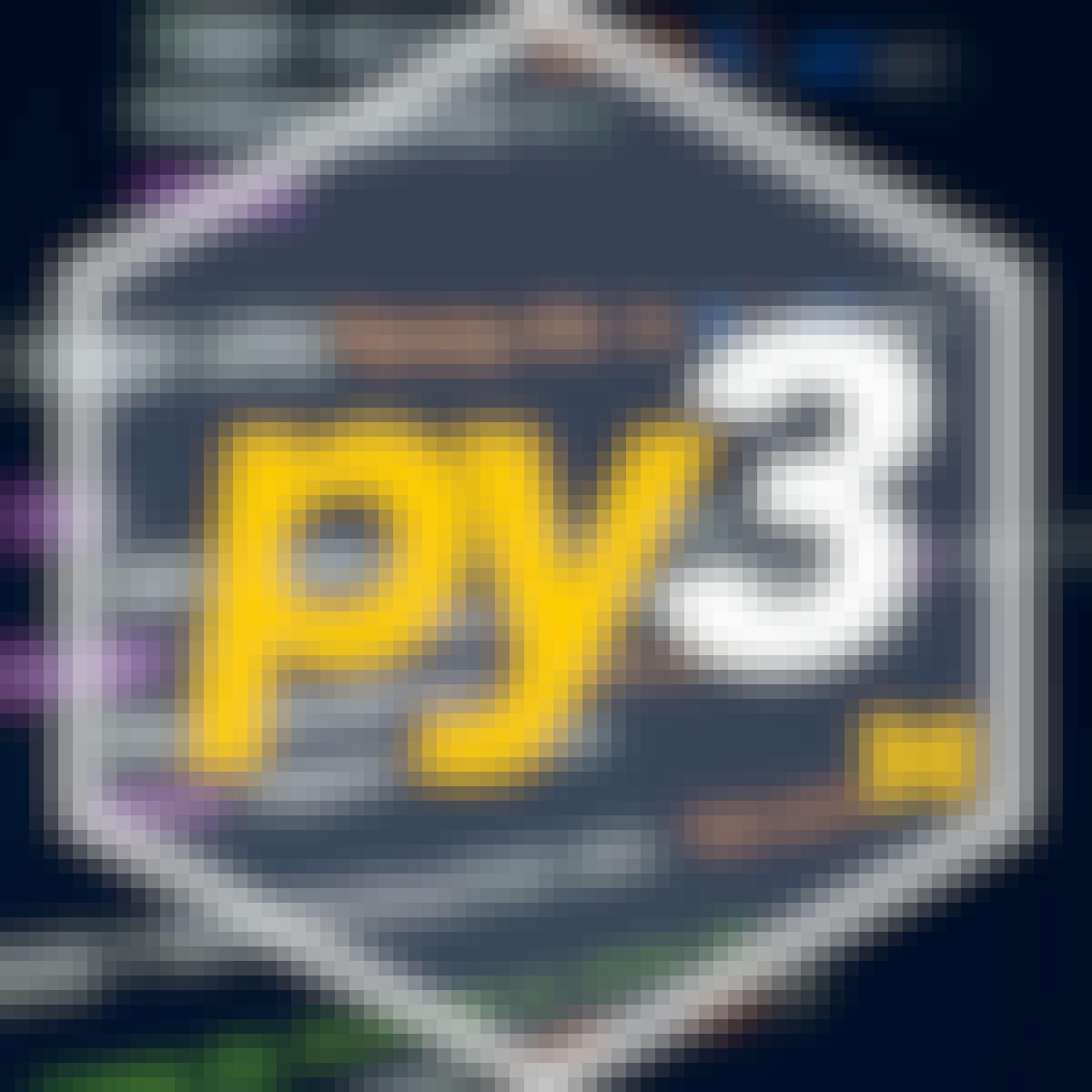

University of Michigan
Skills you'll gain: Unified Modeling Language, JSON, Object Oriented Programming (OOP), Debugging, Object Oriented Design, Data Processing, Unit Testing, Data Import/Export, Restful API, Python Programming, Image Analysis, Data Manipulation, Jupyter, Data Structures, Software Engineering, Application Programming Interface (API), Computer Programming, File Management, Computer Vision, Functional Design

Skills you'll gain: Object Oriented Programming (OOP), Unit Testing, Test Driven Development (TDD), Software Testing, Data Structures, Python Programming, Computer Programming, Development Environment, Integrated Development Environments, Debugging

Skills you'll gain: Git (Version Control System), GitHub, Version Control, Puppet (Configuration Management Tool), CI/CD, Containerization, Debugging, Bash (Scripting Language), Infrastructure as Code (IaC), Docker (Software), Continuous Deployment, Continuous Integration, Technical Communication, Network Troubleshooting, Linux Commands, Linux, Scripting, Automation, Python Programming, Computer Programming
In summary, here are 10 of our most popular python courses
- Python for Data Science, AI & Development: IBM
- Crash Course on Python: Google
- DeepLearning.AI Data Analytics: DeepLearning.AI
- Microsoft Python Development: Microsoft
- AI Agents and Agentic AI in Python: Powered by Generative AI: Vanderbilt University
- Python for Everybody: University of Michigan
- Data Analysis with Python: IBM
- Programming for Everybody (Getting Started with Python): University of Michigan
- Python Basics: University of Michigan
- Python 3 Programming: University of Michigan












